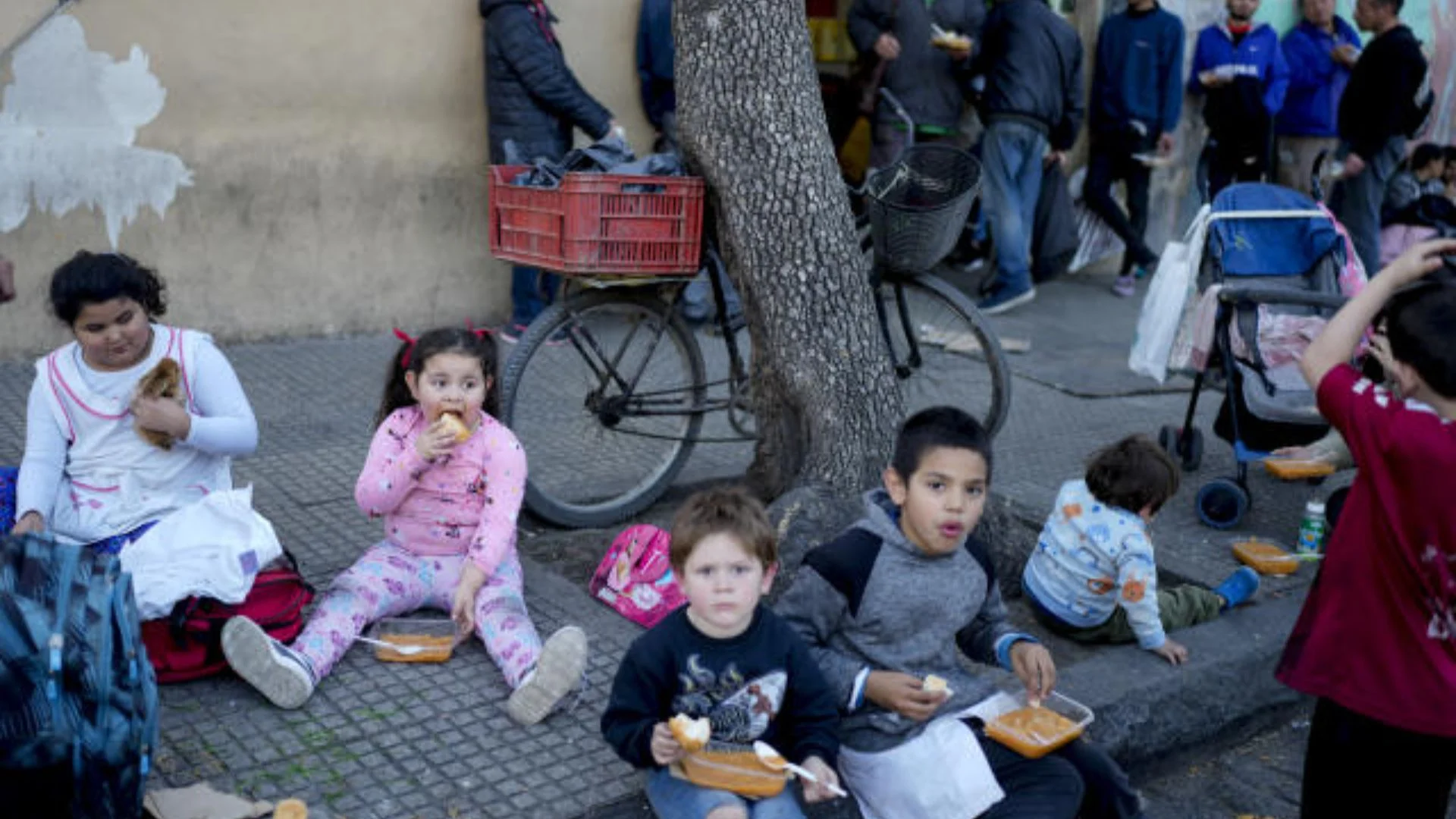Argentina’s poverty rate has surged to nearly 53% in the first half of Javier Milei’s presidency, highlighting the immediate effects of his stringent austerity policies. The government’s statistics agency reported that this is the highest poverty level in two decades, affecting 3.4 million Argentinians since his administration began.
Milei, a self-proclaimed “anarcho-capitalist,” assumed office in December with a promise to implement aggressive spending cuts aimed at curbing rampant inflation and addressing the budget deficit. His measures have included freezing pensions, reducing aid to soup kitchens, slashing welfare programs, halting public works projects, and laying off tens of thousands of public employees. Additionally, cuts to energy and transportation subsidies have led to rising living costs, diminishing the purchasing power of many families.
Kirsten Sehnbruch, a Latin America expert at the London School of Economics, remarked on the unprecedented spike in poverty rates, stating, “This new economic program is not protecting the poor. The jump is absolutely horrendous.” Despite the social impact, Milei’s policies have been welcomed by markets, investors, and the International Monetary Fund (IMF), with monthly inflation dropping from about 26% in December to approximately 4% in June. However, annual inflation remains exceedingly high at over 230%.
Community worker María Claudia Albornoz lamented the dire situation, stating, “Money is really worth absolutely nothing.” Meanwhile, Catalina, a 33-year-old ministry worker, expressed her fears of job loss after being informed that 2,500 employees would be laid off by year’s end.
While Milei’s approval ratings were once robust, recent surveys indicate a drop of nearly 15% in September, suggesting that public support may be waning. Christopher Sabatini, a senior fellow at Chatham House, cautioned about the potential dangers of Milei’s austerity measures, questioning their effectiveness in alleviating poverty.
Milei’s spokesperson defended the government, claiming it inherited a “disastrous situation” from previous administrations, and emphasized ongoing efforts to improve the country’s economic conditions.







